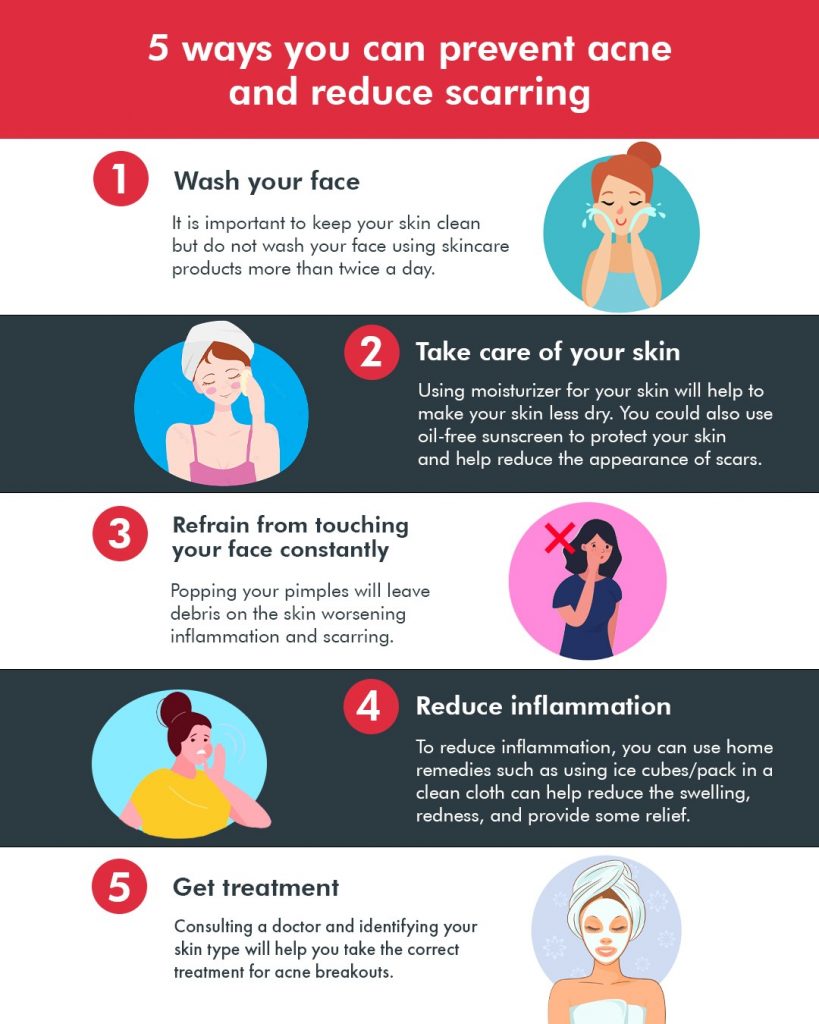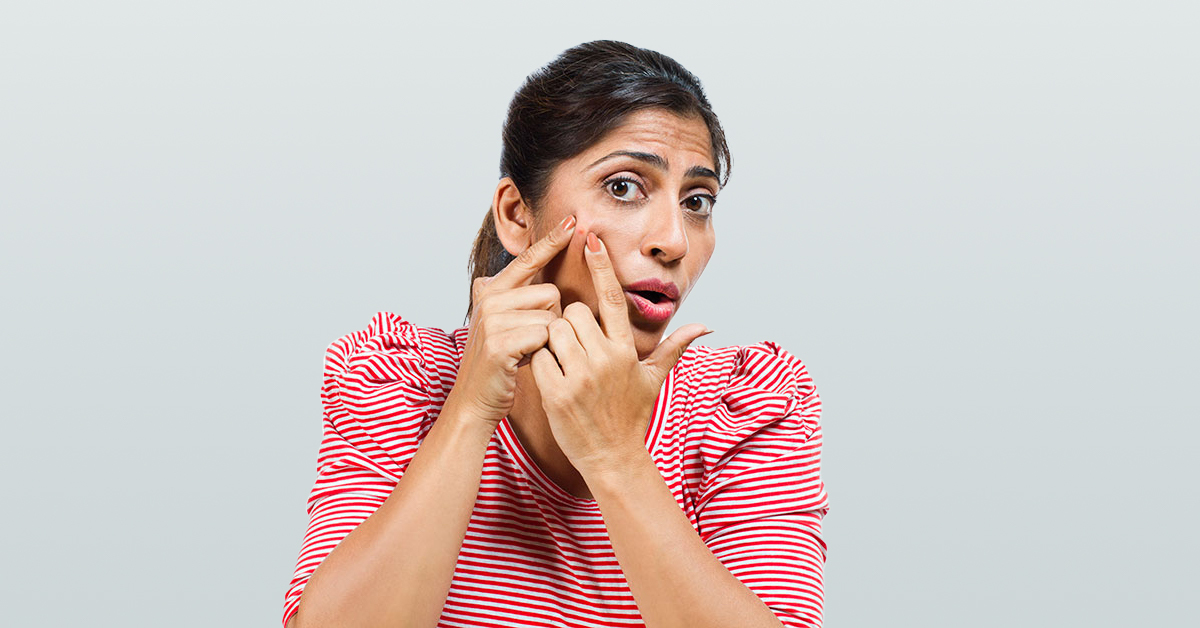Acne is a common skin condition that most of us have to deal with no matter which age category we belong to. On top of that most times, acne leaves scars that can last for a long period of time.
Don’t worry, you are not alone. According to NHS UK, about 95% of people in the age category of 11 to 30 are affected by acne.
Acne is not a condition that can be cured, however, acne can be prevented by controlling and treatment.
So how does acne occur?
Acne or pimples occur when bacteria, oil glands are overactive, and dead skin fill and inflame pores. Acne can mostly develop on the face, back, and the chest. Change of hormones and genetics can also have an impact in acne breakouts.
Can we prevent acne scars?
Although acne is temporary, acne can leave permanent scars. It is difficult to prevent scarring however, there are precautions which can be taken to reduce scarring.
Here are 5 ways you can prevent acne and reduce scarring;
1. Wash your face
It is important to keep your skin clean but do not wash your face using skincare products more than twice a day. Your skin is delicate so remember to be gentle. It is always good practice to use your fingertips gently when washing your face.
If your skin is irritated, constantly washing your face may affect the skin more and make the breakouts worse. Therefore wash your face in the morning and night with lukewarm water. Ensure the water is not too hot or too cold since cold water doesn’t effectively remove dirt and hot water may dry your skin.
2. Take care of your skin
Using moisturizer for your skin will help to make your skin less dry. If you have oily skin, you may think that moisturizing could add to more breakouts. However, using a moisturizer helps to keep your skin hydrated. It will also help reduce inflammation.
A dehydrated skin can increase acne breakouts. This is because the body creates more oil to support the dehydrated skin. This will eventually lead to pores getting clogged. Using oil-free moisturizer will help solve this issue.
You could also use oil-free sunscreen to protect your skin and help reduce the appearance of scars.
3. Refrain from touching your face constantly
Touching your face constantly is a ‘big no’. It may be tempting to pop your pimples, but as we have heard since we were little, breaking our pimples is a bad idea. Popping your pimples will leave debris on the skin worsening inflammation and scarring.
By touching your face constantly you end up spreading bacteria, oil and dirt thereby blocking the pores on your skin. This will further worsen your acne.
4. Reduce inflammation
To reduce inflammation you can use home remedies. Using ice cubes/pack in a clean cloth can help reduce the swelling, redness, and provide some relief. Research has indicated that Tea tree oil helps improve mild to moderate acne. This is due to anti-inflammatory and antibacterial properties of Tea Tree oil. Before applying to the skin always remember to dilute the oil.
5. Get treatment
Consulting a doctor and identifying your skin type will help you take the correct treatment for acne breakouts. You can also try over-the-counter products that contain benzoyl peroxide and/or salicylic acid for acne. If you feel that the products you use are not helping, then do consult a doctor.

Acne can affect self-esteem and your mental health. If you feel acne breakouts are affecting your daily activities and how you view yourself, please don’t hesitate to seek medical help.
Always remember your acne doesn’t define you – be kind to yourself.




